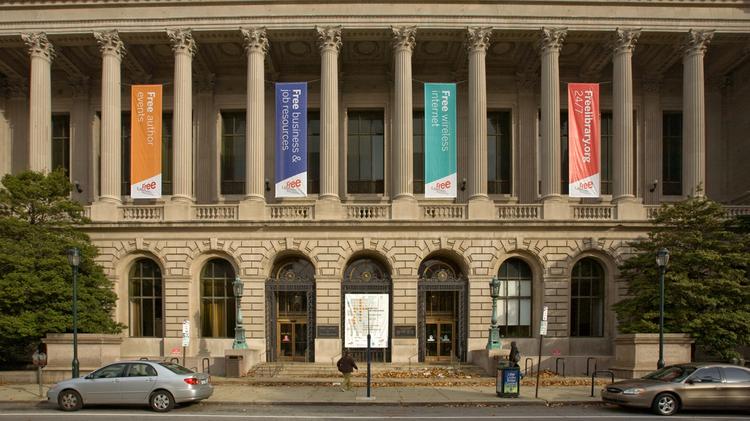Article originally published in the Philadelphia Business Journal on August 17, 2020.
Since the beginning of the year, the leadership of two high-profile nonprofit organizations within Philadelphia, the Philadelphia Museum of Art and the Free Library of Philadelphia, faced damaging accusations by their employees. This has resulted in significant change at those organizations. What could have been done to resolve the issues before they reached the point that damaged the reputations of these nonprofits?
Philadelphia Museum of Art
On Aug. 6, the employees at the Philadelphia Museum of Art voted overwhelmingly to unionize, with a vote of 181 to 22. This vote was the culmination of events caused by the toxic workplace culture that existed within the Art Museum for some time.
In March, I wrote an article headlined, “Philadelphia Museum of Art scandal demonstrates the need for an ethics hotline.” In that article, I wrote about accusations by several female employees that Joshua Helmer, former assistant museum director, made inappropriate advances and intimidated them with threatening comments, creating a toxic work environment.
Helmer left the museum in February 2018. The New York Times, which broke the story on Jan. 10, reported that the complaints about Helmer were made as far back as 2016, with no apparent intervention by museum leadership.
A Philadelphia Inquirer article on July 28 headlined, “‘A pretty bleak picture’: Philadelphia Museum of Art reveals to staff what its workplace assessment uncovered,” reported on the findings of an employee climate assessment commissioned by the Museum and conducted by consulting firm VallotKarp. The VallotKarp report confirmed the allegations of a toxic workplace environment.
Quoting the Inquirer article, “Leslie Anne Miller, chair of the board of trustees, said the museum was committed to making changes in how the museum treats its staff, how it listens, and whom it hires, with greater diversity and accountability the ultimate goals.”
Notwithstanding Miller’s comment, 89% of museum employees chose to unionize to send a message to the Art Museum management and the board that real change was needed.
The Free Library of Philadelphia
On June 26, a letter was sent on American Federation of State, County and Municipal Employees Local 2187 letterhead to the Free Library of Philadelphia, addressed to President Siobhan Reardon, her executive staff and the board of trustees, informing them of a vote of no confidence in Rearden and her executive team. The letter was signed, “The workers, patrons, supporters and friends of the Free Library.”
The letter states, “[Library workers] are alarmed by the utter lack of written safety protocols … during the COVID-19 pandemic… We are disgusted by the continued lip-service and insufficient action … concerning racism, diversity, equity and inclusion… We are frustrated by a completely unresponsive and unproductive human resource department. We are embarrassed by the lack of digital equity planning and the absence of technology growth.” The letter goes on and on.
Many of the issues pointed out in the letter are not controlled by Rearden but by policy and funding decisions of the City of Philadelphia administration.
On July 20, Rearden, president and director of the Free Library since 2008, stepped down from her position after reported prodding by Philadelphia Mayor Jim Kenney.
One wonders why the concerns of the employees of the Art Museum and Free Library were not heard and addressed long before they went public, resulting in the unionization of the workforce at the Art Museum and the resignation of the president of the Free Library.
Workplace culture issues are not new or limited to nonprofits. In recent years, there have been embarrassing incidents at two Philadelphia governmental authorities: the Philadelphia Parking Authority and the Philadelphia Housing Authority.
Philadelphia Parking Authority
In September 2016, the board of the Philadelphia Parking Authority allowed its then-executive director, Vincent Fenerty, to keep his job after an investigation showed that he had sexually harassed an employee. The board reduced his personnel decision-making power, imposed other restrictions and made him pay the $30,000 charged by an outside investigator working on the case. He should have been fired.
Shortly after the decision to permit Fenerty to remain in his position, the board learned that he had sexually harassed another employee in 2006. Fenerty resigned the next day, knowing that this time the board would fire him.
Philadelphia Housing Authority
In 2010, it was revealed that Carl Greene, director of the Philadelphia Housing Authority, settled four sexual harassment claims over five years by paying off the victims and not telling his board he was doing so. Greene faced similar accusations in the past which were well known, but he was hired anyway. Greene also faced a host of corruption accusations while at the PHA, which resulted in a federal investigation. He was subsequently fired.
Describing the culture within the PHA under Greene’s leadership as “toxic” is an understatement. Where was the board while all this was going on?
Board oversight and governance includes ensuring the CEO espouses an ethical tone at the top and nurtures the right culture. Hotlines to the board were mandated for public companies by the Sarbanes-Oxley Act of 2002 in the wake of the Enron, WorldCom and Tyco accounting scandals, so employees not comfortable using the chain of command could have their concerns heard. Hotline reports are usually reviewed by the audit committee of the board
Hopefully, the use of a hotline will become standard practice at nonprofit and governmental organizations and just as importantly, hotline reports will be acted upon. This is the best mechanism for employees to report their concerns to the board.
Stan Silverman is founder and CEO of Silverman Leadership and author of “Be Different! The Key to Business and Career Success.” He is also a speaker, advisor and widely read nationally syndicated columnist on leadership, entrepreneurship and corporate governance. He can be reached at Stan@SilvermanLeadership.com.

